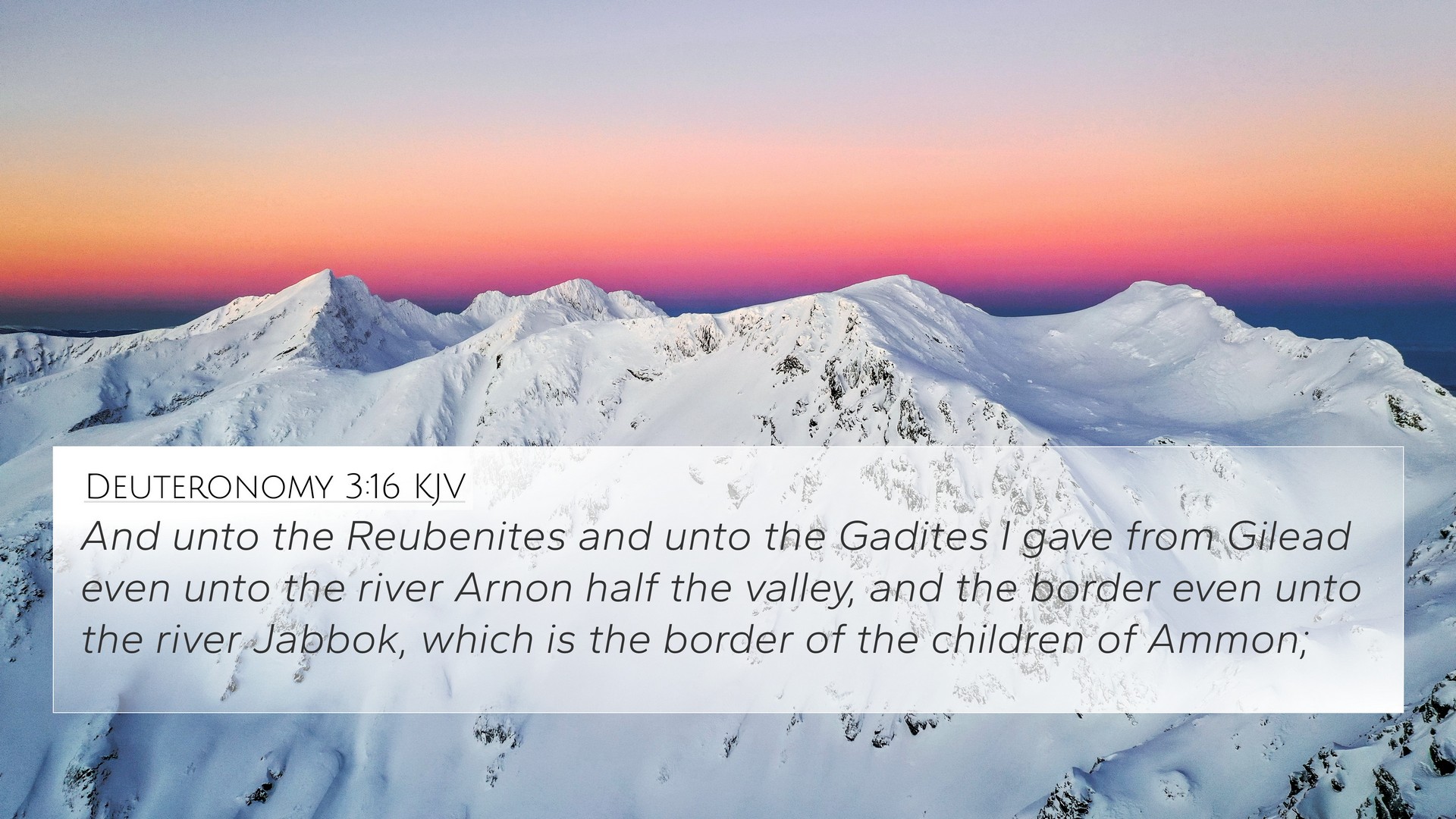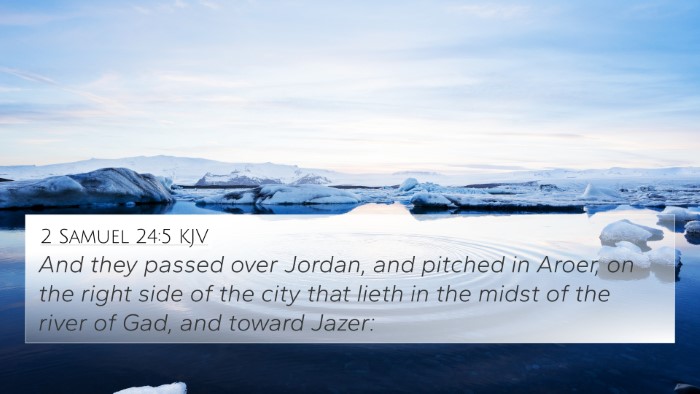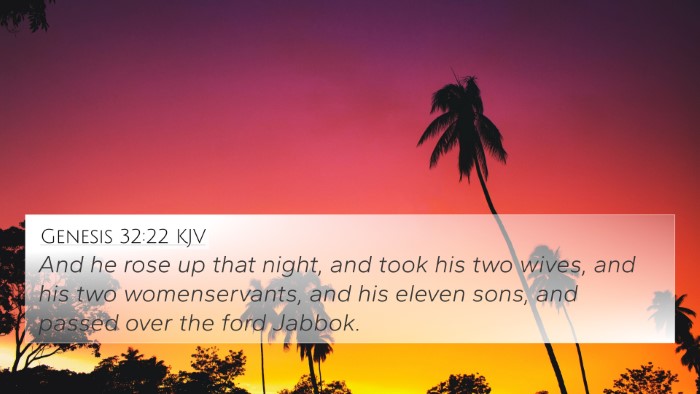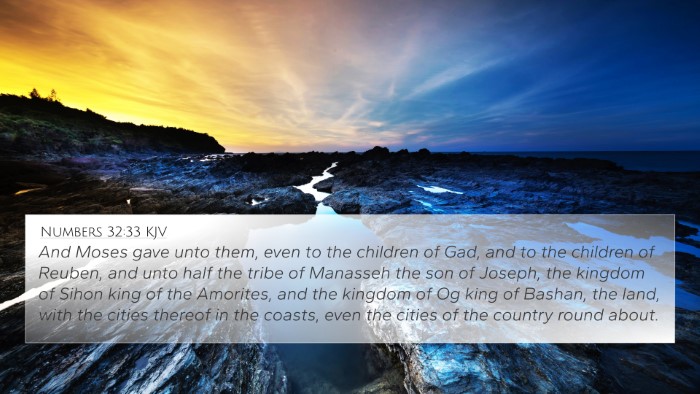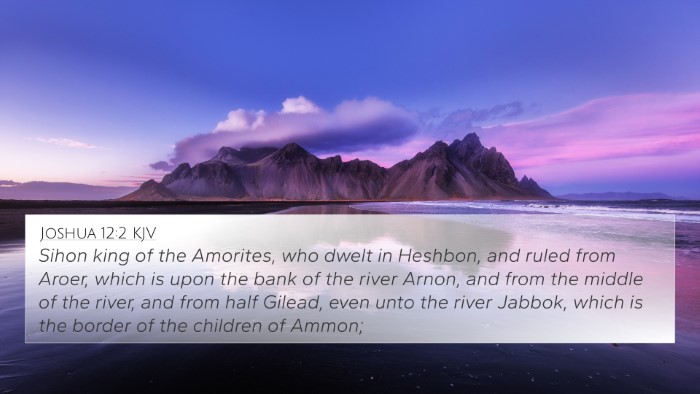Understanding Deuteronomy 3:16
Bible Verse: Deuteronomy 3:16
In this verse, Moses conveys how the land was distributed among the tribes of Israel, specifically mentioning the regions given to the tribes of Reuben and Gad, as well as the half-tribe of Manasseh. The verse illustrates the importance of land allocation as part of God’s promise to His people.
Contextual Overview
Deuteronomy is a crucial book that serves as Moses' farewell address to the Israelites. It emphasizes the moral and spiritual obligations of the covenant people. Here, Moses recounts their journey and God’s provisions, highlighting the significance of obedience to God’s laws.
Commentary Insights
-
Matthew Henry:
Henry notes the division of land as a gift from God, emphasizing His faithfulness in fulfilling promises to the patriarchs. The land represents not just physical territory but a significant aspect of Israel's identity as God’s chosen people.
-
Albert Barnes:
Barnes elaborates on the geographical context, underscoring the strategic importance of these territories. The land distribution allowed for effective governance and settlement, ensuring each tribe has its provision in accordance with God’s plans. He also underscores that this allocation was part of the larger narrative of God’s covenants.
-
Adam Clarke:
Clarke provides historical insights, noting how these lands were fought for and claimed under divine guidance. He emphasizes the cooperative nature of the tribes, working together to secure their inheritance, which signifies unity under God’s leadership.
Thematic Connections
Deuteronomy 3:16 connects to several important themes within the Bible, especially around land, promise, and the covenant relationship between God and Israel. This theme is found throughout Scripture and invites deeper comparative studies.
Cross-References
Below are key verses that are related to Deuteronomy 3:16:
- Numbers 32:1-5: This passage discusses the request of the tribes of Reuben and Gad to settle in the land of Gilead.
- Joshua 1:12-15: This section details the fulfillment of the land promise, mentioning similar tribal distributions and responsibilities.
- Jeremiah 50:19: This verse reflects on Israel’s return to their land, reinforcing the prophetic hope tied to the land.
- Deuteronomy 12:10: The emphasis on resting in the land promised signifies God’s faithfulness and their future security.
- Psalms 37:29: This verse speaks about the righteous inheriting the land, linking moral living to divine inheritance.
- Isaiah 54:3: The idea of expansion in the land is echoed, highlighting God's promise amid challenges.
- Romans 4:13: Paul’s discourse on the promise made to Abraham connects to the land promises made to Israel.
How to Use Cross-References in Bible Study
To deepen your understanding, explore tools for Bible cross-referencing.
- Utilize a Bible concordance to find related verses.
- Incorporate a Bible cross-reference guide for thematic studies.
- Engage in cross-reference Bible study for comprehensive insights.
- Consider cross-referencing Bible study methods to establish meaningful connections.
- Use Bible chain references as a thematic exploration tool.
Conclusion
Deuteronomy 3:16 encapsulates the significance of God’s promise fulfilled through land allocation, inviting readers to explore deeper connections within Scripture. Understanding cross-references enriches Bible study and illuminates God’s enduring faithfulness and covenantal relationship with His people.
